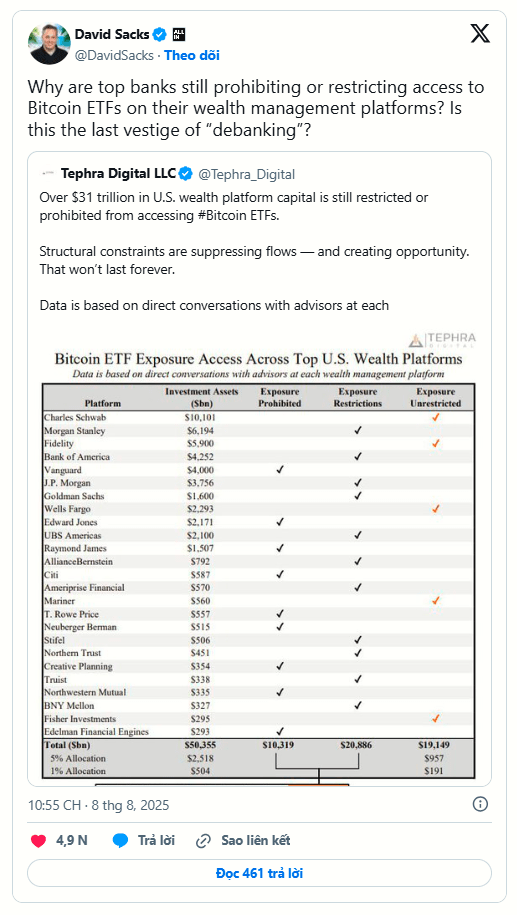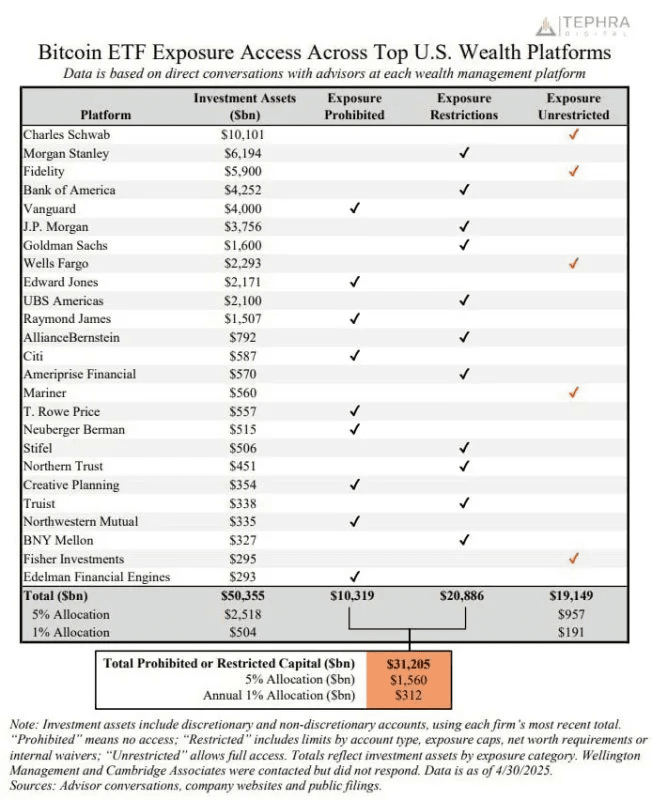David Sacks, a venture capitalist and the "Crypto and AI King" of the U.S., is criticizing major banks and investment platforms for what he describes as a persistent form of "banking discrimination" against Bitcoin exchange-traded funds.
On August 8, Sacks questioned whether the current restrictions are the "final traces of banking service cancellation," referring to the severing or limiting of access to cryptocurrency-related services.

Data from Tephra Digital shows that more than $31 trillion of capital from asset management platforms in the U.S. remains restricted or prohibited from investing in Bitcoin ETFs. This total includes $10.3 trillion that is completely banned and $20.8 trillion that is restricted by factors such as account type, investment limits, or net worth requirements.

Platforms like Vanguard, Edward Jones, AllianceBernstein, Citi, Ameriprise, and T. Rowe Price completely prohibit access to Bitcoin ETFs. Meanwhile, Morgan Stanley, JPMorgan, Goldman Sachs, Wells Fargo, UBS, Raymond James, and other platforms only allow limited access, often reserved for high net worth clients or through specific types of accounts.
Only $19.1 trillion of underlying assets - about 38% of the total tracked - is in the "unrestricted" category, with Charles Schwab, Fidelity, and Mariner among the companies offering full access.
Sacks notes: "Access to Bitcoin ETFs at the leading asset management platforms in the U.S., with $31 trillion, remains restricted or prohibited."
Some banks have made small strides towards integration. State Street and Charles Schwab have announced trading access, but custodial services remain limited and many banks continue to impose barriers.
According to a report by Tephra Digital, a separate analysis of the top 25 banks in the United States shows "slow progress" in integrating Bitcoin products.
Sacks' comments came just a day after President Donald Trump signed an executive order targeting what his administration calls the ideological deprivation of participants in the cryptocurrency industry.
This order removes "reputational risk" from the legitimate reason for banks to terminate customer relationships — a phrase critics allege has been used to blacklist cryptocurrency companies in what some in the industry call the "Choke Point 2.0 Campaign."
